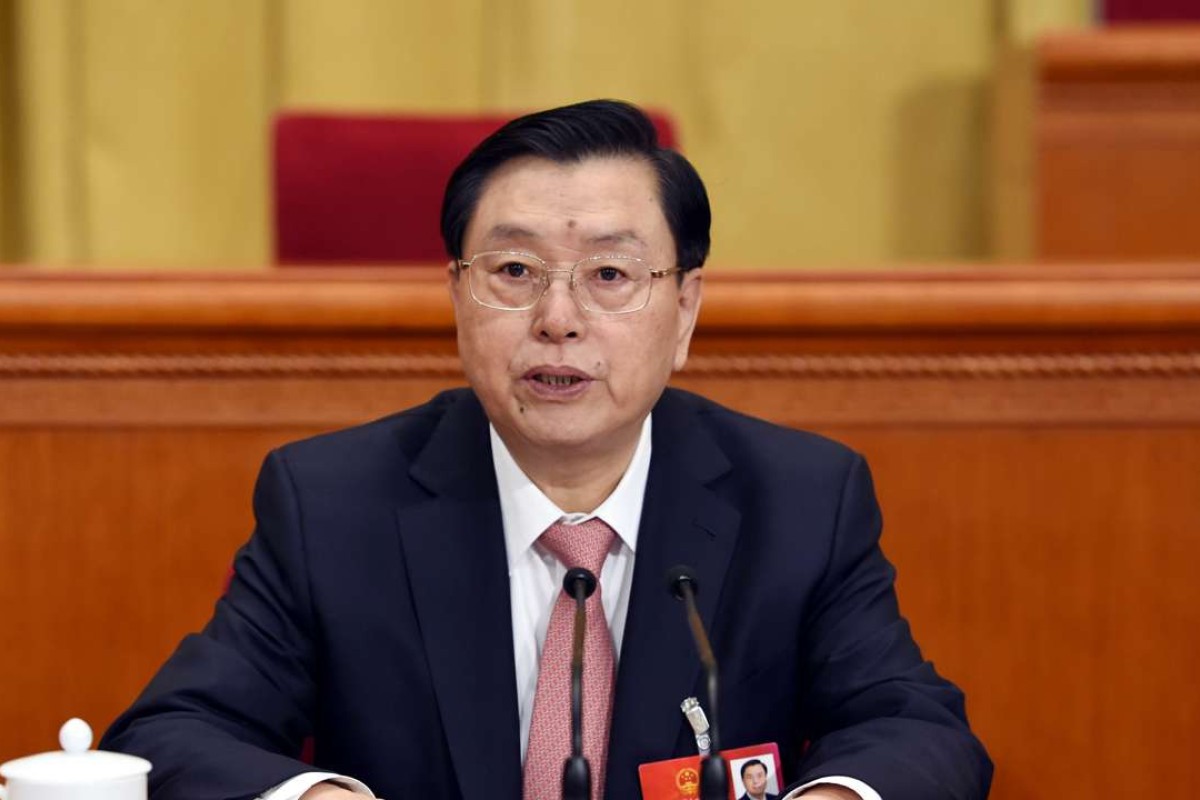 Zhang Dejiang, chairman of the Standing Committee of China's National People's Congress (NPC).
Zhang Dejiang, chairman of the Standing Committee of China's National People's Congress (NPC).China’s third highest-ranking official begins his three-day visit to Hong Kong today, ending a four-year span when no state leader set foot here.
Zhang Dejiang (張德江), is currently the third-highest ranking member in the central government. As well as serving as Chairman of the Standing Committee of the National People’s Congress, he heads the leading group on Hong Kong and Macau Affairs, comprising heads of 18 ministries and departments. The group studies the social situation of the two special administrative regions, and co-ordinates the work relating to Hong Kong and Macau among various central government departments, covering political, economic, ideology and national security.
On August 31, 2014, under Zhang’s leadership, the NPC decided that if Hong Kong were to pick its leader by “one man, one vote” in 2017, there could only be two or three candidates, who must first be vetted and approved by half of a 1,200-member committee, an outfit likely dominated by Beijing loyalists, according to a central government white paper.
The proposal was widely criticised by pan-democrats and triggered the 79-day Occupy protest. The Hong Kong government’s reform package, which adopted the white paper wholesale, was rejected by the Legislative Council last June.
Hong Kong officials say Zhang’s visit a high-level tour to expound on and endorse the city’s role in China’s “belt and road” strategic initiative. But politicians and China observers are expecting messages from Zhang – however overt or oblique – on the city’s politics, which have recently involved debates over ideas like independence and self-determination.
Zhang has two official objectives in town. First, he is to attend a summit on the “belt and road” initiative on Wednesday and give a keynote speech. Second, reports by state media Xinhua say that Zhang, also the leader of Beijing’s central coordination group for Hong Kong and Macau affairs, is here to “inspect” the city.
The “inspection” – which will feature unprecedented face-to-face encounters with pan-democratic lawmakers at a 40-minute cocktail reception – comes just months after the city experienced arguably its bloodiest social unrest since the 1960s, with hundreds involved in the Mong Kok disturbance, attacking police and setting streets ablaze.
All eyes will be on whether the Beijing leader will continue the central government’s soft, unprovocative attitude, as already displayed during the annual “two sessions” in the capital two months ago.
Economic policies such as the belt and road initiative are a convenient yet compelling reason to stage Zhang’s visit. It is convenient as it is the latest strategy to broaden Hong Kong’s economic base, but also compelling as it comes at a time when the economy is in the doldrums.
Few, though, are expecting big goodies for the economy. Even Chief Executive Leung Chun-ying admitted Zhang was unlikely to announce the date of the long-awaited Shenzhen-Hong Kong stock connect.
Baptist University journalism scholar Bruce Lui was more blunt: “Zhang has had little to do with belt and road. A quick news search of ‘Zhang Dejiang’ and ‘belt and road’ on Baidu gave only six results – a side-dish topic when he met officials from ... Iraq and Laos,” said Lui.
The state leader will stay at the Grand Hyatt Hotel in Wan Chai and deliver a keynote speech at the Belt and Road Summit on China’s trade strategy, to be held at the Convention and Exhibition Centre on Wednesday.
Hong Kong police are mounting their biggest security operation for a visiting state leader, citing the threat of international terrorism and radical localism in the city. About 6,000 police officers will be deployed each day to protect the chairman of the National People’s Congress Standing Committee, with the risk level for Zhang Dejiang raised to the maximum “very high” during the three days he spends here.
On Sunday night, Hong Kong police conducted a comprehensive search in Wan Chai overnight to secure the area ahead of Zhang’s arrival.
